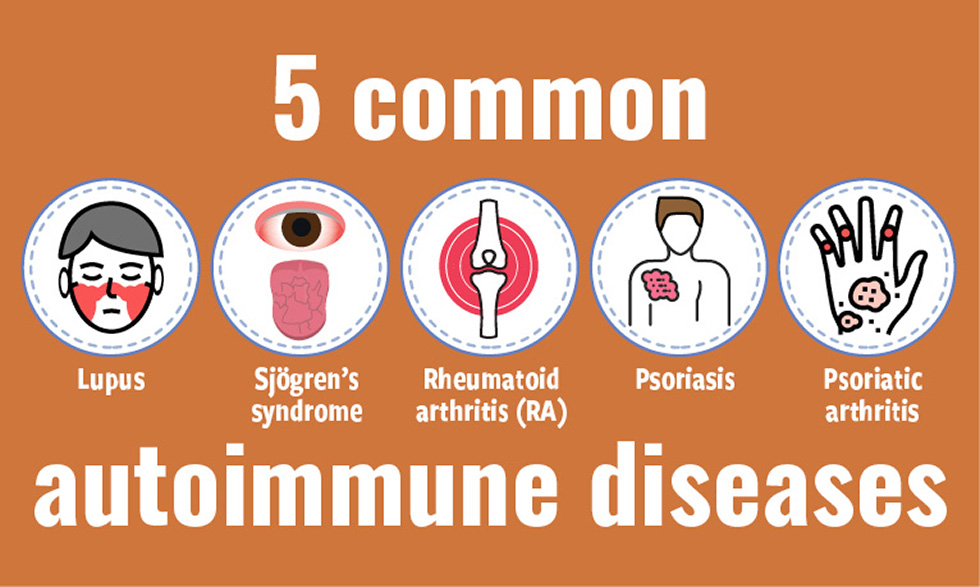
Epigenetic changes play a crucial role in determining the function of cells throughout development. While all cells contain the same genes, epigenetics helps dictate whether a cell will become a heart cell, nerve cell, or skin cell. Moreover, emerging research has highlighted the correlation between epigenetic modifications and various human diseases, including cancers, autoimmune disorders, neurological conditions, and allergic conditions. This article delves into the impact of epigenetics on cancer, autoimmune diseases, and allergic conditions, shedding light on the intricate relationship between epigenetic regulation and disease development.
I. Epigenetic Modifications in Cancer
A. Inactivation of Tumor Suppressor Genes
Epigenetic changes, such as hypermethylation of promoter regions in tumor suppressor genes, can lead to the inactivation of crucial tumor suppressor functions. Methylation levels also influence important cellular processes like cell division, DNA repair, differentiation, apoptosis, angiogenesis, metastasis, growth factor response, detoxification, and drug resistance. The detection of cancer using methylation levels has shown promising advances, facilitating early diagnosis.
B. Other Epigenetic Changes in Cancer
Deregulation of microRNAs (miRNAs) has been observed in breast cancer, highlighting their potential as diagnostic biomarkers. Additionally, hyper- and hypo-methylation of various genes in breast cancer have been identified, further emphasizing the role of epigenetic alterations in cancer development.

Epigenetic modifications can be reversible, which opens up possibilities for epigenetic therapies that can modify gene expression patterns and potentially treat diseases.
II. Epigenetics and Autoimmune Disorders
A. Epigenetic Factors in Autoimmunity
Studies investigating autoimmune disease concordance in twins have suggested the involvement of epigenetic factors. Epigenetic homeostasis failure, triggered by environmental agents, can lead to gene expression changes in specific differentiated cells, resulting in a loss of self-tolerance and the development of autoimmunity. Both the immune system and target organs are key players in this process, and epigenetic modifications of these players may contribute to disease progression.
B. Epigenetic Control of Immune System Functions
Various functions of immune cells, including hematopoietic lineage development, antigen receptor rearrangement, allelic exclusion, and immune responses against pathogens, are epigenetically regulated. Alterations in the epigenetic mechanisms that govern immunological development can contribute to the development of autoimmune diseases.

III. Epigenetics in Allergic Conditions
Complex Nature of Asthma
Asthma, one of the most complex allergic conditions, has shown associations with epigenetic mechanisms. Both asthma and epigenetic modifications are heritable, and non-Mendelian inheritance patterns have been observed in numerous genes associated with familial asthma. Maternal influences on asthma and epigenetic modifications suggest immune interactions between the fetus and the mother, as well as susceptibility to environmental factors.
Conclusion
Epigenetic changes are instrumental in determining cellular function and have significant implications for the development of various diseases. In the context of cancer, epigenetic modifications contribute to tumor suppressor gene inactivation and influence critical cellular processes. In autoimmune disorders, epigenetic factors disrupt self-tolerance and impact immune system functions. Allergic conditions, such as asthma, also exhibit connections to epigenetic mechanisms, with heritability and environmental factors playing a role. Understanding the intricate relationship between epigenetics and disease opens up avenues for innovative therapeutic strategies and personalized approaches that target epigenetic modifications, offering hope for improved outcomes and better disease management.
Frequently Asked Questions (FAQs)
1. What are epigenetic modifications, and how do they influence cellular function?
Epigenetic modifications refer to chemical changes to DNA and its associated proteins that can regulate gene expression without altering the underlying DNA sequence. These modifications help determine whether a cell becomes specialized and play a crucial role in various cellular processes.
2. How do epigenetic changes contribute to cancer development?
Epigenetic alterations in cancer can lead to the inactivation of tumor suppressor genes, impacting crucial cellular functions. Methylation levels and deregulation of microRNAs (miRNAs) have also been observed in cancer, highlighting the role of epigenetic modifications in tumor development and progression.
3. What is the connection between epigenetics and autoimmune disorders?
Epigenetic factors have been implicated in autoimmune disorders, as environmental triggers can disrupt epigenetic homeostasis, leading to gene expression changes and loss of self-tolerance. Epigenetic control of immune system functions is also important, and alterations in these mechanisms can contribute to autoimmune disease development.
4. How are epigenetic mechanisms associated with allergic conditions, such as asthma?
Asthma has shown associations with epigenetic mechanisms, suggesting complex interactions between genetic and environmental factors. Non-Mendelian inheritance patterns and maternal influences on asthma highlight the role of epigenetic modifications and immune interactions in susceptibility to allergic conditions.
5. Can targeting epigenetic modifications be a potential therapeutic strategy for these diseases?
Targeting epigenetic modifications holds promise as a potential therapeutic approach for various diseases. By understanding and manipulating these modifications, it may be possible to restore normal cellular function and potentially alleviate symptoms or slow disease progression.
Disclaimer: The information and other content provided in this blog, or in any linked materials, are not intended and should not be construed as medical advice, nor is the information a substitute for professional medical expertise or treatment. If you or any other person has a medical concern, you should consult with your healthcare provider.
Reference
- https://www.sciencedirect.com/science/article/pii/S1568997224000752#:~:text=In%20the%20context%20of%20autoimmune,altering%20the%20underlying%20DNA%20sequence.
- https://clinicalepigeneticsjournal.biomedcentral.com/articles/10.1186/s13148-019-0632-2
- http://waocp.com/journal/index.php/apjcb/article/view/988


.png)


